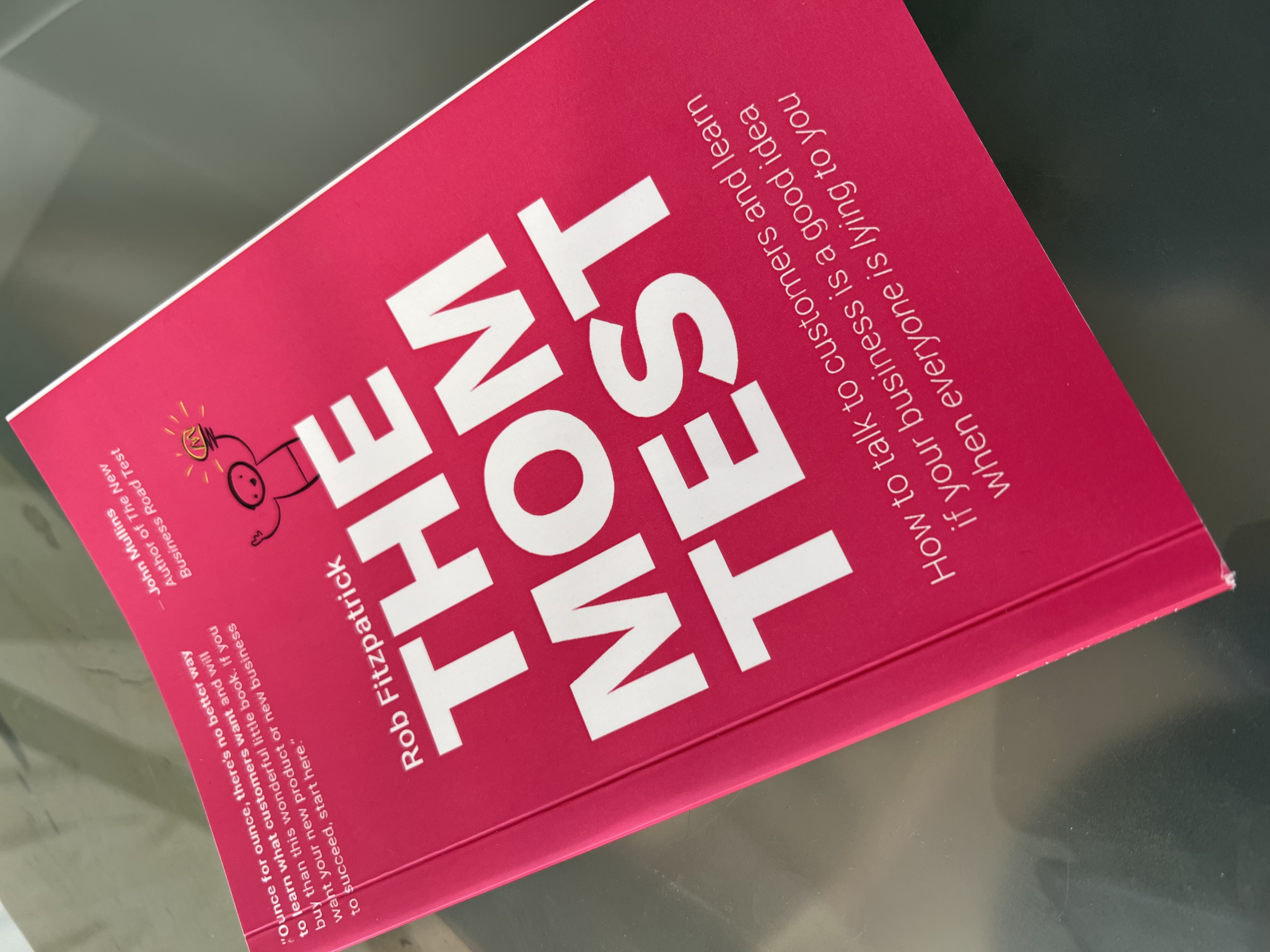At only 116 pages, The Mom Test by Rob Fitzpatrick is a great little book that I wish I had read sooner.
Like much written about lean startup product development and customer development it advocates talking to potential customers before/while developing your product (ideally before).
What is different about this book is how it guides the reader to ask better questions about the customers business and subtly probing their problems in a way that gathers useful, actionable information. It highlights how some types of conversations / questions and responses whilst on the surface sound positive, actually aren't helpful, and can be very misleading!.
(Ego stroking platitudes are not helpful!)
Leave your ego (and leading questions) at the door
Explaining the title of the book..
If you were to ask your mom whether they think your new business idea is a good one, she is (generally) inclined to agree and be supportive, but in business we want the cold hard truth.
In the same way, if you ask questions like "Would you buy a product that did X", you are leading the customer down a very specific line of questioning that may miss other problems in a wider context. It is better to informally get people to share their problems without asking specific direct questions.
The Mom Test
Rob has boiled down the essence of the Mom Test into these 3 rules.
- Talk about their life instead of your idea
- Ask about specifics in the past instead of generics or opinions about the future
- Talk less and listen more
Some takeaways
Prepare your list of 3 - What 3 things do you want to learn from a discussion?
Keep it casual - It advocates informal conversations over formal meetings. Being too formal can be counter productive
Good meetings - Result in facts, commitments and/or advancements
My favourite passages
Rob shares that actually getting people to talk about the problems they have in their business is relatively easy once you have entered into a casual conversation.
"The only thing people love talking about more than themselves is their problems. By taking an interest in the problems and minutia of their day, you’re already more interesting than 99% of the people they’ve ever met."
It is true that startups often try and please everyone and do too much, when instead they should focus on a smaller feature set or more focused customer segments.
"They say startups don't starve, they drown"
(Drown from trying to please too many customer segments)
Summary
Written over 10 years ago, this book could have been written yesterday. It is completely relevant to developing ideas now as it was back then, and the way it has been written, will be relevant for a while to come.
Another thing I like about the book is just how simple, pragmatic, practical and realistic it is. Many authors and books of this kind pad out the content to make it longer, diluting the important messages and takeaways. Having written my own book, I know for a fact that publishers ask you for "more pages".
Whilst I have always known the importance of listening to customer problems, this book has highlighted to me the dangers of asking the wrong types of questions and putting too much faith in positive feedback which in many cases isn't always intrinsically useful.
I'll be ranking this highly on my all time favourite book list and assign it an appropriate rank, and if you are looking for your next read, check out GoodBusinessBooks.com.
Don't collect compliments, collect facts and commitments.
-- Lee
















